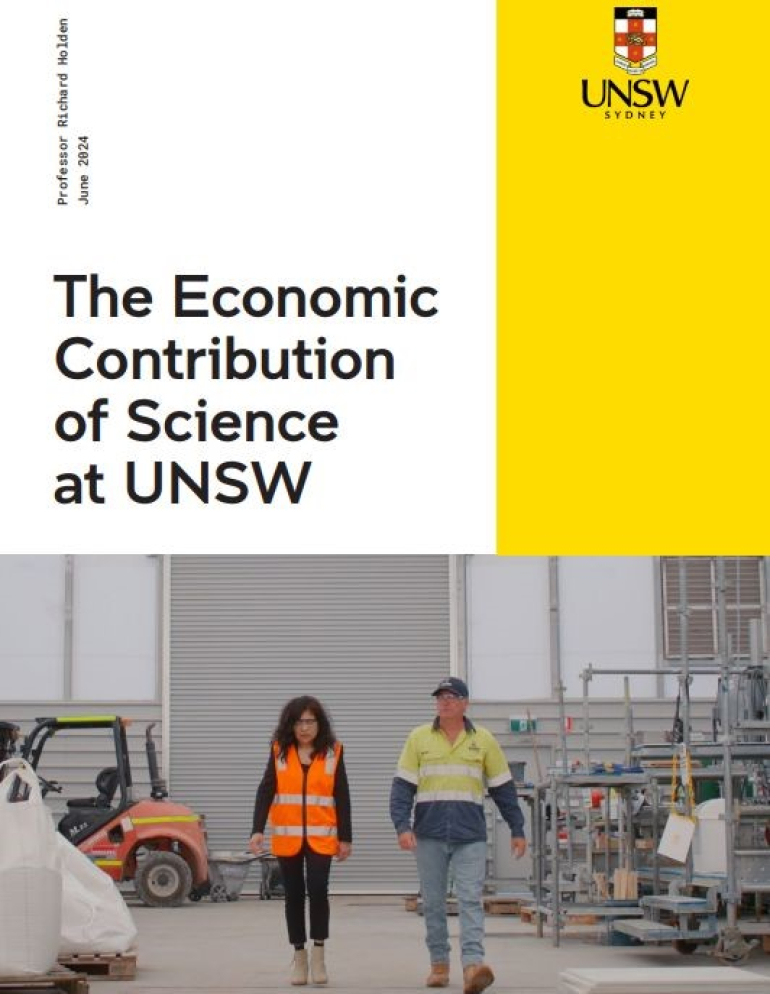Latest news
Read the latest news from the Centre for Sustainable Materials Research and Technology

Image caption: The report cover featuring Veena and Kandui Technologies CEO Andrew Douglas at Kandui's Nowra facility containing SMaRT's Green Ceramics MICROfactorieTM Technology.
Scientific research and development initiatives leading to technology commercialisations by the UNSW SMaRT Centre feature in a new report quantifying the economic impact of science.
The Economic Contribution of Science at UNSW report highlights the impact of SMaRT's various MICROfactorieTM Technologies, and features images of the new Green Ceramics MICROfactorieTM operated by SMaRT partners Kandui Technologies and Shoalhaven City Council.
The new report highlights research commissioned by UNSW Science in 2024 that found 26% of Australian businesses aren't investing in scientific research. Yet, 60% recognise that science plays a vital role in achieving their social impact goals, according to Scientia Professor Sven Rogge, Dean of UNSW Science.
“UNSW Science has a long and proud history of delivering societal, economic, and academic impact,” according to Scientia Professor Sven Rogge, Dean of UNSW Science. “This legacy has been made possible through meaningful collaborations with our partners.”
Professor Frederik Anseel, Dean of the UNSW Business School says that he believes business is the essential link for science to drive future social and economic prosperity.
“The paper outlines how and why scientific research is not just a pursuit of knowledge, but a significant driver of productivity and a contributor to economic and social prosperity,” Prof. Anseel says.